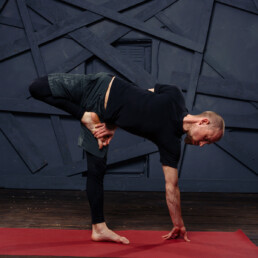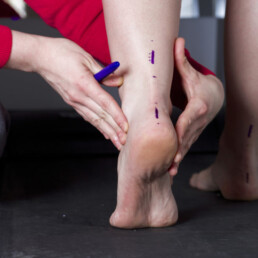
Growing up as a young child off the coast of Mallorca, I was always taught the value of having a good work ethic and not shying away from an honest day of hard work. As a university student living in London, those values stuck with me and became a founding part of my identity that I wanted to carry through into my professional working life.
In the hustle and bustle of London living, the ethics and actions of working hard are considered a worthy badge of honour amongst our peers and professional colleagues. Alongside the ethics of hard work that many institutions try to cultivate, there are a host of accompanying, unwritten working behaviours which are all thought to result in better work productivity. Behaviours such as doing longer working hours, skipping lunch so that you can do more work, having several high strength coffees in the morning to give you that little boost before you get into the office and CUTTING DOWN ON YOUR SLEEP TO ALLOW FOR MORE TIME TO GET WORK DONE!
For so many of us, sleep is something we feel duty bound to do on a daily basis (mainly due to how we feel when we don’t get enough of it!) but it is not something that many of us value to the same degree as having a good diet or being physically fit. In reality, in order to achieve better work performance, greater creativity, continue to develop our intellect and improve performances on the pitch or in the gym; sleep is one of the vital common lifestyle factors that allows our brains and body to properly recover in order for us to be able to achieve our goals and move beyond them.

From the middle of the 1960s, sleep has been something that has been progressively pushed to the back of the line in terms of importance within our daily lives. On average, we now sleep around 25% less (up to 2 hours) than our counterparts 60 years ago. I myself have been guilty of this in the past! During the first few years of my osteopathic degree, I was often sacrificing my precious sleep time in order to get some extra study done, squeeze in a little bit of surplus training or watch another episode on Netflix! Whilst I thought I was making the most of what life had to offer, during those early years, I had regularly suffered with intermittent episodes of dizziness, some strange periods of unexplained pain and occasional difficulty in remembering information. Upon reflection, all of these bizarre symptoms had been due to repetitive sleep restriction.

Not only can repetitive sleep restriction effect the function of your mind in terms of creativity, memory retention and work productivity, but it can also affect your physical performance, your ability to recover from training and even your ability to lose body fat. This was apparent with one of my patients, whom I managed to help drop a kilogram of body weight in only a week, simply by getting her to improve some of her sleep habits!
Ask any athlete at the top of their profession how much they value their sleep and all of them from Cristiano Ronaldo to Serena Williams, will tell you that disrupting their habit of sleep is a golden rule never to be broken.

From my study and research into the field of sleep, I realised that creating the daily habits of good sleep hygiene is a skill which needs to be trained. And, once I managed to establish those habits, I feel incredible and have never looked back since!
So to get you going on your journey to a life of more energy, better performance and inspiring creativity; here are a few sleep tips to send you on your way. Please remember, that learning to implement the following tips is a skill like any other, and there may always be bumps along the way!
So here are my top three tips for getting some better sleep:
- Go to bed and wake up at the same time everyday. Our bodies actually run like clocks and the healthy functioning of our bodies are highly dependant upon the daily rhythms of our hormonal, immunological, digestive, organ and neurological systems. The term for the cyclical nature for how our bodies function is called our “Circadian Rhythm.” Being systematic with our sleeping routines help to keep our circadian rhythm running efficiently and smoothly.
- Have a technology and screen curfew for at least 60-90 minutes before going to sleep, and ideally keep these objects out of the bedroom. I know this can be a difficult task. However, try to fill these last two hours of the day with something your truly enjoy, like reading a book or socialising with friends or a partner. The idea is to substitute your screen time for something you find enjoyable, but which doesn’t keep your body alert and awake.
- Keep your bedroom pitch black and cool. Keeping a cool bedroom can help your body realise that it is time for bed; the ideal sleeping temperature is 18.5 degrees centigrade. The room should also be extremely dark. The room should be so dark, in fact, that it is difficult to see your hand in front of your face when the lights have been turned off. Remember that darkness symbolises bedtime, and that regularly creating this association can be helpful in training your body to know when it is time to get some rest.
If you can relate to any of the problems mentioned above or you need more guidance to help you get a better night’s sleep please feel free to contact our sleep specialist, Yannick, via email at evorehab@gmail.com. Or better still, you can book online (www.evolutionrehab.com) for a remote sleep consultation with Yannick to help you achieve that perfect night’s sleep.



